
Moritz Leuenberger is a Swiss politician and lawyer who served as a Member of the Swiss Federal Council from 1995 to 2010 and President of the Confederation in 2001 and in 2006.

Otto Stich was a Swiss politician.

The 26 cantons of Switzerland are the member states of the Swiss Confederation. The nucleus of the Swiss Confederacy in the form of the first three confederate allies used to be referred to as the Waldstätte. Two important periods in the development of the Old Swiss Confederacy are summarized by the terms Acht Orte and Dreizehn Orte.
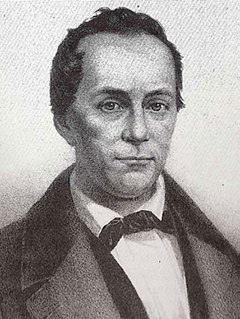
Martin Josef Munzinger was a Swiss politician.
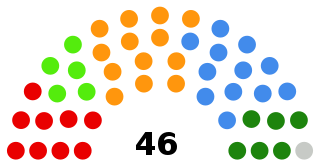
The Council of States is the smaller chamber of the Federal Assembly of Switzerland. It is considered the Assembly's upper house, with the National Council being the lower house. It comprises 46 members.
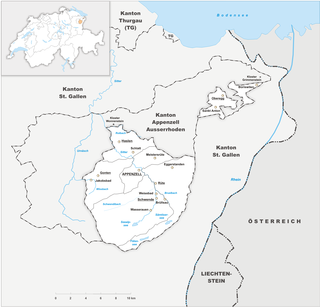
Appenzell Innerrhoden is one of the 26 cantons forming the Swiss Confederation. It is composed of six districts. The seat of the government and parliament is Appenzell. It is traditionally considered a "half-canton", the other half being Appenzell Ausserrhoden.

Appenzell Ausserrhoden is one of the 26 cantons forming the Swiss Confederation. It is composed of twenty municipalities. The seat of the government and parliament is Herisau, and the seat of judicial authorities are in Trogen. It is traditionally considered a "half-canton", the other half being Appenzell Innerrhoden.

Herisau is a municipality of the canton of Appenzell Ausserrhoden in Switzerland. It is the seat of the canton's government and parliament; the judicial authorities are situated in Trogen.
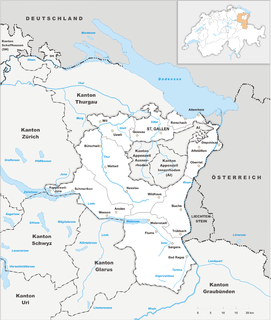
The canton of St. Gallen, also canton of St Gall, is a canton of Switzerland. The capital is St. Gallen.

Appenzell is a historic canton in the northeast of Switzerland, and entirely surrounded by the canton of St. Gallen.

Didier Eric Burkhalter is a Swiss politician who served as a Member of the Swiss Federal Council from 2009 to 2017. A member of FDP.The Liberals, he was President of the Swiss Confederation in 2014.
On December 12, 2007, all seven members of the Federal Council, the government of Switzerland, were elected by the joint chambers of the Federal Assembly for the 2008–2012 term of office. Councillors are elected individually by an absolute majority of votes, with the incumbent councillors defending their seats in descending order of seniority.
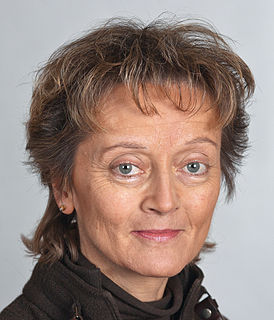
Eveline Widmer-Schlumpf is a Swiss politician and lawyer who served as a Member of the Swiss Federal Council from 2008 to 2015. A member of the Swiss People's Party (SVP/UDC) until 2008, she has since then been a member of the Conservative Democratic Party (BDP/PBD). Widmer-Schlumpf was the head of the Federal Department of Justice and Police from 2008 to 2010, when she became head of the Federal Department of Finance. She served as President of the Swiss Confederation in 2012.
A by-election to the Swiss Federal Council was held in Switzerland on 16 September 2009, after incumbent Federal Councillor Pascal Couchepin announced his intention to retire on 31 October 2009.

Karin Keller-Sutter is a Swiss politician who has served as a Member of the Swiss Federal Council since 2019. A member of FDP.The Liberals, she is the head of the Federal Department of Justice and Police. Keller-Sutter previously served as President of the Council of States for the 2017–2018 term.

Johann Niklaus Schneider-Ammann is a Swiss businessman and politician who served as a Member of the Swiss Federal Council from 2010 to 2018. A member of FDP.The Liberals, he was President of the Swiss Confederation in 2016. Schneider-Ammann headed the Federal Department of Economic Affairs, Education and Research during his tenure as a Federal Councillor.

Johannes Zollikofer was a Swiss reformed vicar.

Hans Altherr is a Swiss politician. He is a member of FDP.The Liberals and served as President of the Council of States in 2011 and 2012.


















